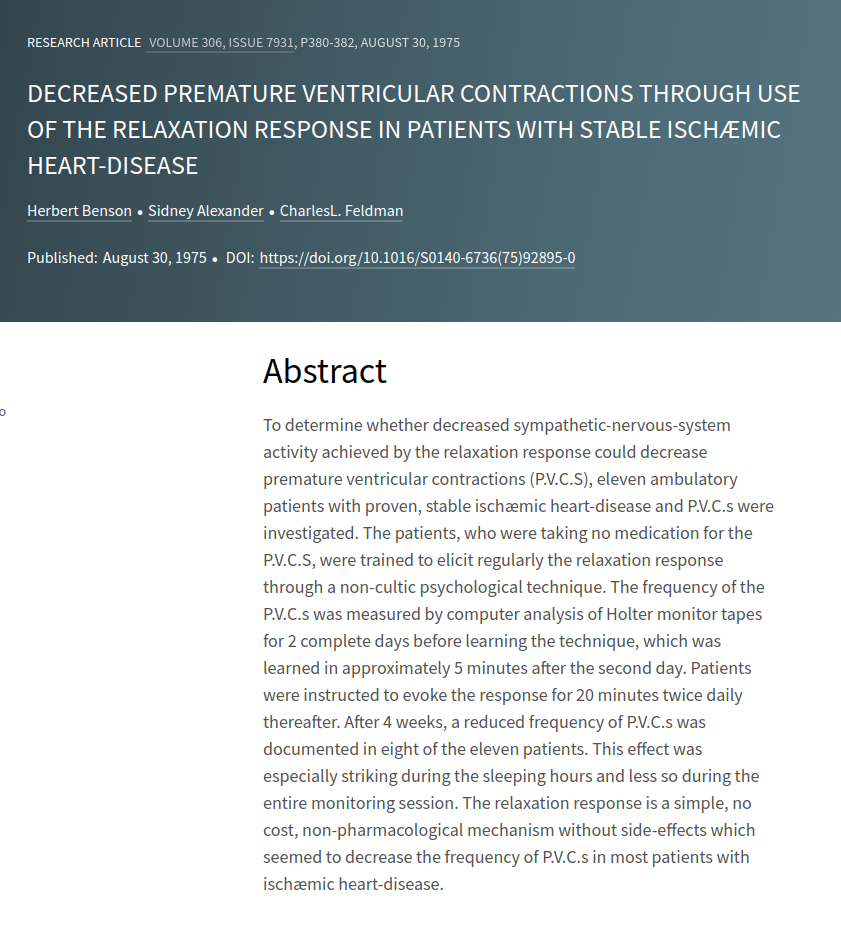To determine whether decreased sympathetic-nervous-system activity achieved by the relaxation response could decrease premature ventricular contractions (P.V.C.S), eleven ambulatory patients with proven, stable ischæmic heart-disease and P.V.C.s were investigated. The patients, who were taking no medication for the P.V.C.S, were trained to elicit regularly the relaxation response through a non-cultic psychological technique. The frequency of the P.V.C.s was measured by computer analysis of Holter monitor tapes for 2 complete days before learning the technique, which was learned in approximately 5 minutes after the second day. Patients were instructed to evoke the response for 20 minutes twice daily thereafter. After 4 weeks, a reduced frequency of P.V.C.s was documented in eight of the eleven patients. This effect was especially striking during the sleeping hours and less so during the entire monitoring session. The relaxation response is a simple, no cost, non-pharmacological mechanism without side-effects which seemed to decrease the frequency of P.V.C.s in most patients with ischæmic heart-disease.
Decreased Premature Ventricular Contractions Through Use of the Relaxation Response in Patients with Stable Ischemic Heart-Disease
Publication
The Lancet
306(7931), p. 380-382
Abstract
Web and Email Links
Related Listings
Journal
International Journal of Cardiology
We report extremely prominent heart rate oscillations associated with slow breathing during specific traditional forms of Chinese Chi and Kundalini Yoga meditation techniques in healthy young adults. We applied both spectral analysis and a novel analytic technique based on the Hilbert transform to quantify these heart rate dynamics. The amplitude of these oscillations during meditation was significantly greater than in the pre-meditation control state and also in three non-meditation […]
Journal
Journal of Research and Development in Education
Evaluated self-esteem and locus of control in a group of high school students prior to, during, and following a single academic year. Using a randomized, crossover experimental design, 26 Ss were exposed to either a health curriculum based on elicitation of the relaxation response (RLR) and then a follow-up period, while 24 were assigned to a control health curriculum and then the RLR. Psychological testing was conducted using the Piers-Harris Children's Self Concept Scale and the Now […]
Journal
Science
Sympathetic nervous system activity was assessed in experimental and control subjects who were exposed to graded orthostatic and isometric stress during monthly hospital visits. After the first session, the experimental subjects practiced a technique that elicited the relaxation response. Their concentrations of plasma norepinephrine during subsequent graded stresses were significantly higher. No such changes were noted in the control group. These results were then replicated in the c […]

